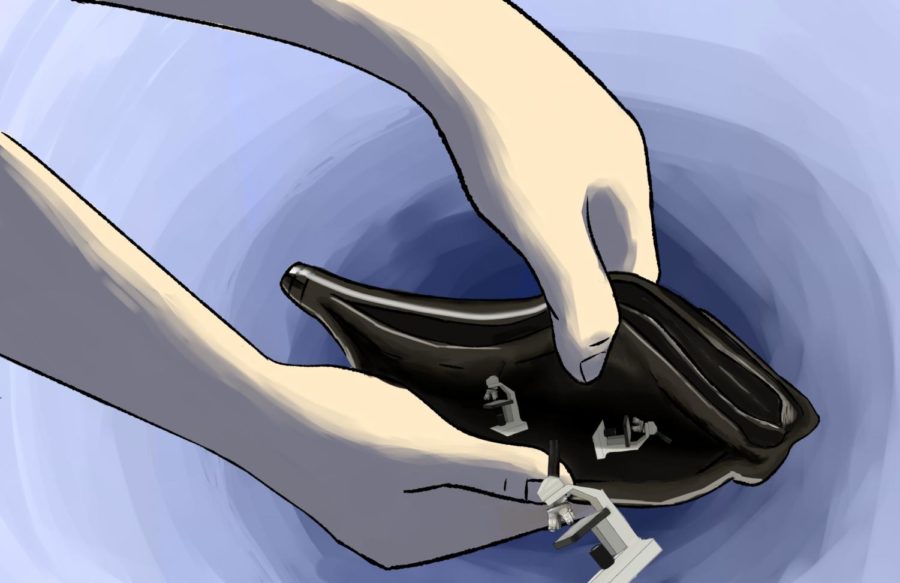Test Tubes and Mushrooms: Science Labs at West
Art/Photo by Westley Kim
Science teachers’ expensive supplies typically get replaced periodically. However, because of COVID-19, many materials bought for the 2020 school year have expired, leading some science teachers to find another way to fund their classes.
September 15, 2021
Good labs are a crucial part of any science class. Over the last two school years, however, science students at West have not been able to properly participate in labs. Instead of getting their hands wet and putting lab coats on, students and teachers have resorted to online versions of what would otherwise be hands-on activities. After learning how digital resources can be used in the classroom, teachers have now incorporated both the new and the old into their labs.
Students don’t often consider what goes into a school activity. It’s easy to simply think about one’s own work, and not what others do to prepare for it. Unsurprisingly, West teachers do a lot more than students might assume. Mrs. Chambers, a biology and astrobiology teacher at West, revealed that while many of the materials she uses for her labs have not changed, some science teachers’ supplies may have expired in the past year, although the majority of her materials were “shelf stable,” and have lasted through the past one and a half years. Mrs. Chambers pointed out an optimistic perspective on the condition of her supplies: “It’s a nice reminder that there are forms of life that can do things that we can’t, and that includes going dormant.” With this, however, she also spoke of some supplies that have gone bad.
Some consumable materials, such as mushrooms for her enzyme lab, have expired and will have to be replaced. In those instances, some teachers simply go out and buy the materials themselves since it can be “too impractical to go through the paperwork and say to the district: ‘four weeks from now, I’m going to need… sugar and mushrooms.’ It’s just easier to go out and buy it myself.”
The transition from online labs to in-person ones have entailed more than the expiration of mushrooms, however. While many science teachers enjoyed being able to take advantage of resources such as Gizmos (a digital lab program, which enabled activities that students would otherwise never have been able to do), most expressed a desire to work with real materials again. Biology teacher Mr. Collins stated, “I always just felt bad about it, because [doing hands-on labs] should be what a science classroom should be. At least at some point over…the ten months that we’re together, you should have at least a couple opportunities to engage with reality in a way that illuminates some of the concepts that you’re studying.” While some teachers will be incorporating online resources into their classrooms again, they are most excited to get back to letting students work with real materials.
The one certainty about this school year is this: teachers are eager to get back to in-person labs. Even if they have to provide materials themselves, they want to give students an opportunity to truly experience the science that they are learning and become fully engrossed in the concept. The pure passion that many of West’s teachers display for their subjects serve as inspirations for students to develop a similar love for learning.






